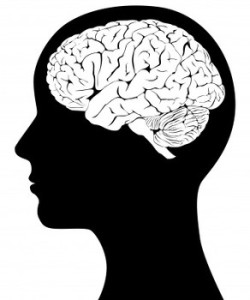- Home
- Editorial
- News
- Practice Guidelines
- Anesthesiology Guidelines
- Cancer Guidelines
- Cardiac Sciences Guidelines
- Critical Care Guidelines
- Dentistry Guidelines
- Dermatology Guidelines
- Diabetes and Endo Guidelines
- Diagnostics Guidelines
- ENT Guidelines
- Featured Practice Guidelines
- Gastroenterology Guidelines
- Geriatrics Guidelines
- Medicine Guidelines
- Nephrology Guidelines
- Neurosciences Guidelines
- Obs and Gynae Guidelines
- Ophthalmology Guidelines
- Orthopaedics Guidelines
- Paediatrics Guidelines
- Psychiatry Guidelines
- Pulmonology Guidelines
- Radiology Guidelines
- Surgery Guidelines
- Urology Guidelines
Speech disorder can lead to brain disease

U.S.: Apraxia, a problem with speech programming, can lead to neurodegenerative disease - a condition that affects neurons in the human brain, a study says.
Apraxia of speech can evolve into a neurologic disorder, causing difficulty with eye movement, using the limbs, walking and falling that worsens as time passes.
It may start with a simple word one can't pronounce and may lead to stage in six years that, they are in a diapers, can't speak, can't walk and are drooling, said the researchers from Mayo Clinic in Minnesota, US.
Some patients eventually become mute from primary progressive apraxia of speech.
The symptoms exhibited by people with apraxia of speech include slow speech rate, inconsistent mistakes, such as saying a word or sound correctly sometimes and not others, impaired rhythm of speech, groping of the mouth to make sounds, better automatic speech, such as greetings, compared with purposeful speech, the study elicited.
"Because patients and even many medical professionals don't recognise apraxia of speech, treatment typically is sought in later stages of the disease," said Keith Josephs, a neurologist from Mayo Clinic.
Apraxia of speech can evolve into a neurologic disorder, causing difficulty with eye movement, using the limbs, walking and falling that worsens as time passes.
It may start with a simple word one can't pronounce and may lead to stage in six years that, they are in a diapers, can't speak, can't walk and are drooling, said the researchers from Mayo Clinic in Minnesota, US.
Some patients eventually become mute from primary progressive apraxia of speech.
The symptoms exhibited by people with apraxia of speech include slow speech rate, inconsistent mistakes, such as saying a word or sound correctly sometimes and not others, impaired rhythm of speech, groping of the mouth to make sounds, better automatic speech, such as greetings, compared with purposeful speech, the study elicited.
"Because patients and even many medical professionals don't recognise apraxia of speech, treatment typically is sought in later stages of the disease," said Keith Josephs, a neurologist from Mayo Clinic.
While speech therapy does not reverse or halt the progression of apraxia, it can develop compensations for producing better sounds. People with apraxia of speech also can use computers or texting for alternate means of communicating, the researchers said.
Speech is a complex brain-body achievement, these researchers note. It first requires selection of appropriate words, organising them into a coherent message. This message activates 100 muscles between the lungs and lips to produce at least 14 distinct sounds per second that can be comprehended by a listener.
The study was presented at the American Association for the Advancement of Science (AAAS) annual meeting in the US last weekend.
Next Story
NO DATA FOUND

Disclaimer: This site is primarily intended for healthcare professionals. Any content/information on this website does not replace the advice of medical and/or health professionals and should not be construed as medical/diagnostic advice/endorsement or prescription. Use of this site is subject to our terms of use, privacy policy, advertisement policy. © 2020 Minerva Medical Treatment Pvt Ltd